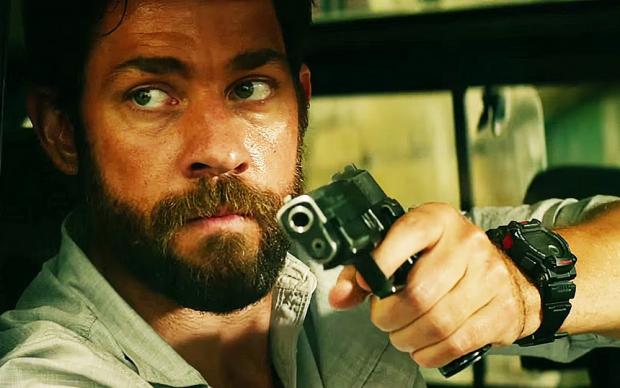The Heroic Hired Guns of Benghazi
Late last week, a number of Republican Congressional representatives, assembled in Baltimore for a policy confab, decided not to listen to the latest episode of their party’s current election cycle reality TV show—otherwise known as the Republican presidential nomination debates. Instead they opted to attend a special screening of Michael Bay’s new movie about the September 11, 2012 Islamist attack on the American consulate and a nearby CIA outpost in Benghazi, Libya. The US ambassador, J. Christopher Stevens, and three other Americans died during the militants’ attack. You don’t have to agree with Representative Tom Price (R., GA) that 13 Hours: The Secret Soldiers of Benghazi is “incredible” to sympathize with the representatives’ choice of an evening’s entertainment. Also, maybe these Republicans were looking for new evidence or support for their long-running effort to lay the blame for the Benghazi debacle on former secretary of state and current presidential candidate Hillary Clinton.
But Bay’s movie has nary a mention of Mrs. Clinton, nor of President Obama (save for a reference to “POTUS” being briefed). Bay and scriptwriter Chuck Hogan haven’t indulged in any direct political judgments or comments. Their big, booming, (literally) explosive picture does contain some crucial and controversial personal blame-laying, though it isn’t linked to either the president or the former secretary.
Adapted from Mitchell Zuckoff’s book, 13 Hours focuses on six military special ops veterans who form a security team at the CIA post, contracted for by the agency under a program created after 9/11 to provide protection for staff around the world. This privatization of public business has produced serious problems in some instances, including the killing of innocent civilians by private guards in Iraq. 13 Hours takes an altogether different tack. The six men in the Benghazi security team are portrayed as uncommon heroes, exemplifications of bravery and competence. Quite possibly they were.
We meet one of them as the picture opens, Jack Silva (John Krasinski), an ex-Navy SEAL flying into Libya to join the team because his insurance job in the States isn’t earning him enough to support his family. Flashbacks and scenes of him Skyping with his wife and very young daughters are meant to infuse some human scale and warmth into a movie that’s soon to be given over to violent mayhem. Silva finds that he and his fellows are regarded as an unnecessary presence by the station chief, known only as Bob (David Constabile), who’s afraid they might constitute a provocation to the locals. He presumptuously condescends to them as “hired help” and directs them to stay as much as possible out of his way.
When the men pay a visit to the consulate, they find it’s underfortified and its security seriously undermanned. (There’s a passing reference to Congressional budget-cutting, a topic Republicans have since scarcely stressed.) In the brief portrayal of Ambassador Stevens (Matt Letscher), he’s presented as an ardent enthusiast of making friends with Libyans and offering American friendship, and as rather clueless about Benghazi’s ominous milieu.
As demonstrated in his Transformers movies, Bay’s has a honed penchant for action spectacles that rely on hyper-inflated visual and aural effects. His action sequences don’t just excite but often threaten to overwhelm viewers. “Finesse” is not a word that’s often, if ever, been applied to his work. “Relentless” is.
For this one he seems to have tempered his customary approach, probably because 13 Hours has a factual template, and perhaps because of his respect for the special ops warrior protagonists. The battle sequences—the consulate stormed by a large Islamist mob, the small security team’s desperate attempt to repel the attack on the CIA compound—have a brute effectiveness. Bay isn’t without some skill at this sort of thing. These scenes do capture a sense of the frantic confusion of battle, although the confusion can extend to the viewer who may have trouble following what’s happening. “You can’t tell the good guys from the bad guys,” one of the team complains before all hell breaks loose, and it’s easy to feel the same way.
Bay is clear about laying some important blame. The picture holds Bob responsible for crucially delaying the security guys’ mission to relieve the few guards at the consulate. (The real Bob has denied he did this in an interview with the Washington Post.) There’s also a subtext to all this that will easily be discerned by rightist skeptics, mistrustful of governmental authority. The security team members’ efficiency and bravery and devotion to duty, their sturdy individualism, are implicitly contrasted with the arrogance and foolishness of representatives of official authority. 13 Hours isn’t going to be a breakout commercial success, but it is likely to become a useful tool in advancing a political agenda.

